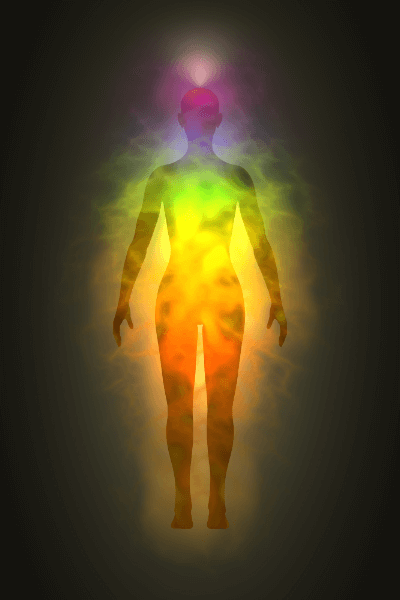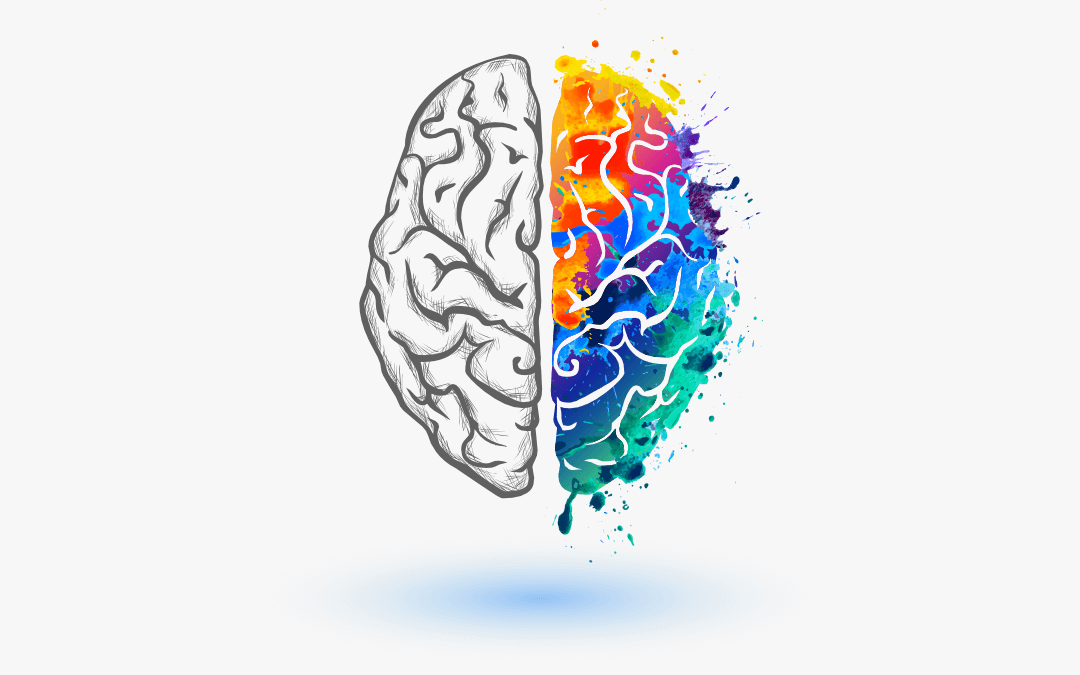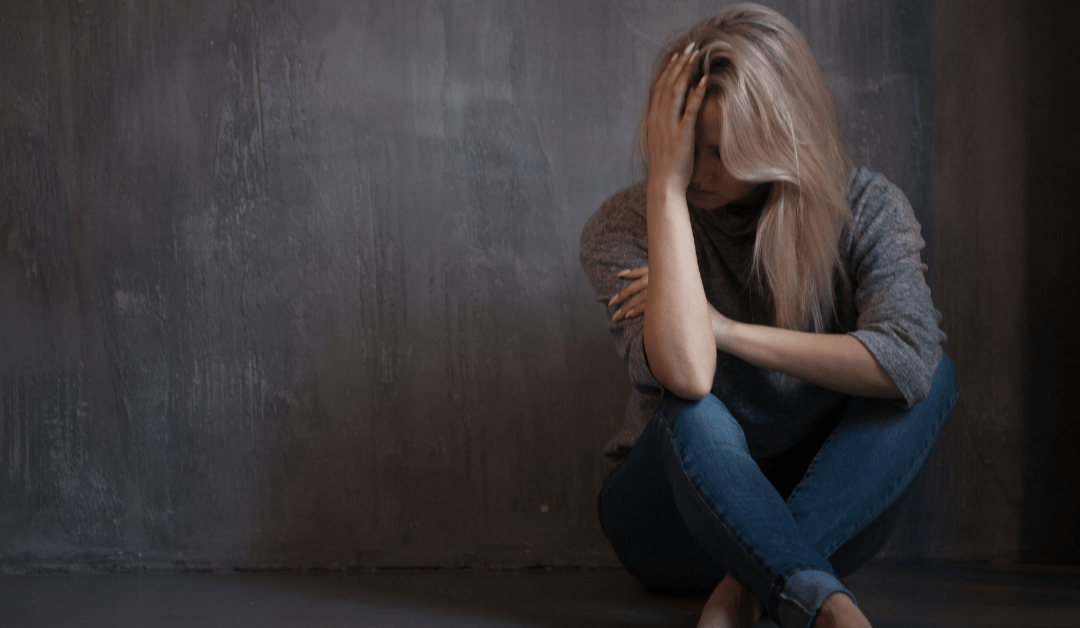I have lived with different levels of anxiety for as long as I can remember. Six years ago, it took over my life so slowly that I didn’t realise what was happening until anxiety crippled me.
I tried everything: box breathing, meditation, hypnotherapy, tapping, Yoga… You name it, I tried it. For years, I floundered around, trapped in a nightmare of fear. I made it out and am happier than I have ever been before becaues this time around, I learned a few important lessons.
The biggest: why it took me so long to return to a calm and balanced life.
If you have “failed to overcome/beat/fight anxiety” and tried different methods but none of them worked long-term, take a deep breath. Understand that there’s nothing wrong with you. NOTHING. In fact, say it out loud: “There is nothing wrong with me.”
Like me, you simply didn’t know. Let’s change that. Here are the 3 reasons why you still suffer from anxiety.

Reason 1: You tried to get rid of your anxiety completely
What is anxiety anyway?
Anxiety = worry + fear
Fear is healthy. It keeps us safe. Without fear, we’d risk our lives all the time by taking reckless actions. You wear a seatbelt because you are afraid you might get into an accident. You check the expiration date on dairy because you’re scared of getting sick. Perfectly normal. Perfectly healthy.
What about the second part of the equation? Worry has almost as bad a rep as fear does. Yet, worry, like fear, has a purpose. Hear me out.
You want to ask your boss for a raise. You worry what you will say to her, meaning you practice your words, maybe even write them down. Then you imagine how your boss will react and plan your own answers. Worrying is a rehearsal. Perfectly normal. Perfectly useful.
Anxiety combines these two, meaning it is a rehearsal of a situation or an action that scares you.
That’s it. Like all emotions, anxiety has a purpose. We feel it for a reason. It sets off chain reactions in our bodies and our minds to help us cope with life. If you have tried to completely overcome anxiety or however you want to phrase it, failure was inevitable because anxiety is a part of you. Once you accept it as one of your many emotions, you can focus on healthy goals: reduce anxiety so it doesn’t prevent you from going after your dreams and maybe even use to as a guide.

Reason 2: Anxiety has become a habit
Habits form through repetition. You probably already knew that. But did you know this also applies to your emotions and feelings?
The amygdala, the part of your brain that triggers your emotional responses, also processes memories. Here’s what that means: It tags every experience with an emotion.
For example, a dog bites you. The amygdala adds “pain, fear” to the memory. The next time you see a dog, your amygdala remembers and triggers anxiety. You are now very careful around this second dog. So far, so useful.
But that’s not always how things happen. Let’s get back to the interview with your boss. You asked for a raise. Your boss said nope. Was she angry that you asked? Your amygdala tags the memory with fear. The next day, you see your boss and your amygdala triggers anxiety. You start to worry. Is she going to fire you?
Maybe your boss ignores you. Maybe she has feedback for you. But in your anxious state of mind everything your boss does is now serious and scary. Every memory that day is suddenly tainted with fear. The next day you’re getting anxious just thinking about work. A few weeks later, you are afraid of leaving the house at all.
When you feel anxiety over and over again in different circumstances your amygdala eventually tags everything with fear. Repetition creates habits.
How do you get rid of a habit? You don’t because that’s incredibly difficult. Instead, you replace a bad habit with a healthy one. All those things you tried before – Yoga, breathing, meditation, tapping, you name it – work once you turn them into long-term habits.

Reason 3: Anxiety triggers chain reactions
Every emotion triggers specific reactions in your body to prepare you to take action. Fun fact: the emotion itself only lasts between 90 and 120 seconds, but the physical reaction the amygdala sets off can stay with you for hours, even days.
When you feel anxious, the amygdala sends signals all over your body. Stress hormones, like cortisol and adrenaline, are released into the bloodstream. Your blood pressure rises and your heart rate increases. You take faster and shallower breaths. Blood flows into your arms and legs. Your body is ready for fight or flight because those are the actions anxiety prepares you for.
Here’s the problem: Most of the time, you’re not actually going anywhere or doing much. The energy released in your body wants you to move, to do something – anything! – but because you’re often physically still, all that energy goes to your head. Literally.
Worrying, normally a healthy rehearsal, suddenly turns toxic. Thoughts dripping with fear rush through your head in endless loops. Your mind feverishly invents unrealistic scenarios and nightmarish visions. More fear. More anxiety. You are trapped.
If you’ve ignored the physical reaction in your body so far, you couldn’t effectively lessen your anxiety. I remember that I was so anxious I could barely think one clear thought.
To lower your anxiety you need to address it on both levels: Release the energy fear unleashes in your body and calm your worry thoughts. Take care of your body and your mind.

The way out – part one: The body
So how do you do that? First, accept that anxiety is an emotion and will always be a part of your life. It does not have to get in your way, though. Mine doesn’t anymore.
Second, build up healthy habits to keep your levels of anxiety as low as possible. Release the energy on a regular basis. By that I mean move. Notice, I’m not saying exercise, although if you want to go for it! But move. Find a form of movement you enjoy. Start small. Make it as easy as possible on yourself.
Going outside stresses you? Find exercises you can do indoors, like Yoga and Qigong. YouTube is full of ten minute practices. Ten minutes still sound too much? Start with two minutes of stretches. Just stretch your arms up in the air. You don’t even have to get up for this. The important part is that you turn these actions into daily habits.
The easiest way to do so? Add your new habit to a daily habit you already have. Take one big stretch as soon as you crawl out of bed. Or do Yoga before you eat your lunch. If you can, go for a walk outside. Start with ten minutes. Or simply count the five minutes you walk to your bus stop. Make it intentional: “I am moving right now to release anxious energy from my body.”
If tapping feels better or breathing exercises, great! Go back to those exercises that didn’t seem to work and turn them into daily habits. That’s the key. Practising every day lessens your anxiety levels permanently. Pick whatever feels the best or least stressful to you.

The way out – part 2: The mind
Once your body is calmer, you can move on to those pesky worry thoughts and replace them with a mantra. If you tried mantras in the past but they did not work for you, I get it. I used to have the same problem, until Dana Wilde explained to me why. There are actually two types of mantras: Perfect language mantras and transitory mantras.
Like me, you’ve probably tried the first kind. Perfect language mantras use perfect language and absolute statements, like “I am brave” or “I am wealthy”. These mantras are often sold as the way to get what you want quickly.
But there are two problems with this: First, mantras are not actually there to get you stuff. Mantras are simply replacement thoughts so you’ll feel better and make better decision. The goal is to shift you out of the harmful emotion, like fear. The actual words in the mantra do not matter that much. What matters is that they make you feel better or, if that is not quite possible yet, that you don’t argue with them.
This brings me to transitory mantras. Unlike perfect mantras, the language in transitory mantras is vague and more general. Examples include “I like the idea of feeling better” and “I am open to feeling calmer.” Much more difficult to argue with that!
You have taken care of your body, now take care of your mind. Pick a mantra that makes you feel good or that youat least don’t argue with. Every time you notice a worry thought, replace it with your new mantra.
Your new life
If you have been suffering from anxiety for a long time, chances are it has turned into a habit. However, now that you know what is going on, you can make the deliberate decision to lower your anxiety levels through new, healthier habits for your body and your mind.
I know you can do it. How do I know? Because that’s what I did. I started with a ten-minute yoga challenge three years ago. I practiced saying mantras. And now I am here, sharing my story with you. Unthinkable four years ago. Best part? As I am typing this, I feel perfectly calm and relaxed.
Do I sometimes feel anxious? Of course. It’s an emotion designed to help me out. But these days I can use my self-awareness skills to take a step back and assess the situation. Maybe my anxiety was triggered by resistance to a change or something new in my life. Perfectly normal. Maybe I am about to do something I do not actually want to do. Better back away.
Anxiety is now just one emotion of many and I know how to release it. I go for that walk. I do my yoga. Maybe I need some tapping. None of this takes long and I enjoy every minute of it. That’s what a life with anxiety feels like to me now.
And if I can do it, so can you.
